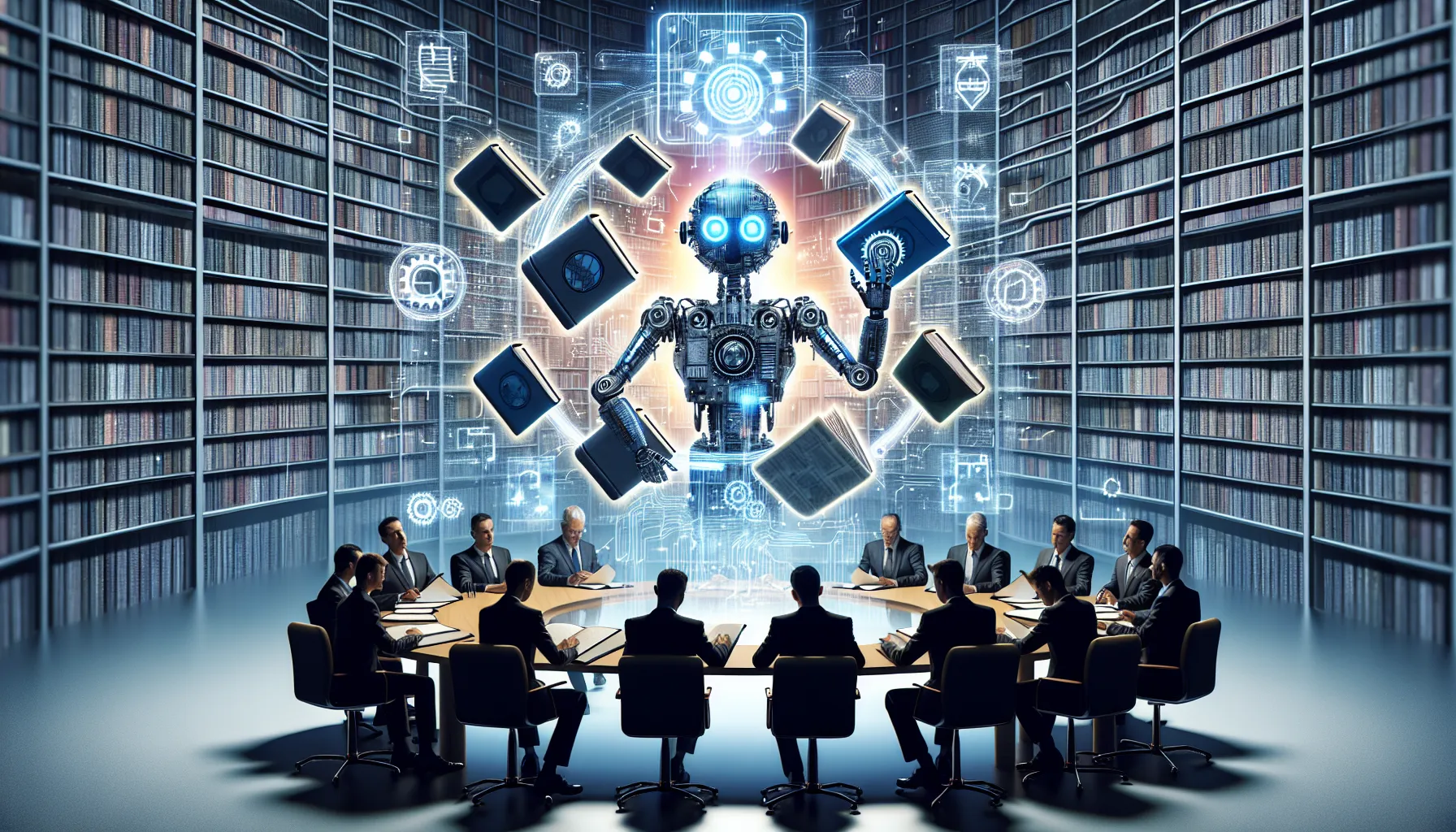
Major publishing houses call for increased legal protections against artificial intelligence systems that use their content without permission or compensation. This growing concern comes as AI companies continue to train their models on vast amounts of published material, often without explicit authorization from content creators.
The publishing industry, already facing significant economic challenges in the digital era, now confronts what many executives describe as an existential threat from AI technologies that can generate content based on their intellectual property.
The Core of the Dispute
The issue is how AI systems are developed and trained. Large language models and other AI systems require massive datasets to learn from, and published books, articles, and other content represent some of the highest-quality training material available. Publishers argue that when AI companies use this content without permission or payment, it constitutes copyright infringement.
Our authors and publishing houses invest significant resources to create original works,” said one industry representative. When AI systems absorb and repurpose this content without compensation, they’re essentially building commercial products on the back of our intellectual property.
Several major publishing groups have begun taking legal action and filing lawsuits against prominent AI developers. These cases may establish essential precedents for how copyright law applies to AI training data.
Economic Impact on the Publishing Industry
Publishers point to several ways AI threatens their business model:
- AI-generated content competing with human-written works
- Decreased licensing revenue when AI systems use content without payment
- Potential market disruption as AI tools become more sophisticated
Financial analysts note that the publishing industry operates on thin margins, particularly vulnerable to technological disruption. Small and medium-sized publishers may face the most significant risk if AI systems can generate content that satisfies consumer demand without compensating original creators.
Proposed Solutions
Publishers are advocating for several approaches to address their concerns. Many support legislation that would explicitly require AI companies to obtain licenses for training data. Others propose technical solutions allowing content owners to opt out of AI training datasets.
“We’re not against innovation,” explained a publishing executive. We simply want fair compensation when our intellectual property is used to build commercial AI products.”
Some AI companies have begun negotiating licensing agreements with certain publishers, suggesting a potential path forward. These agreements typically involve financial compensation and limitations on how the AI can use or reproduce the licensed content.
The Broader Debate
The publishers’ concerns reflect a broader conversation about AI’s impact on creative industries. Musicians, visual artists, and filmmakers have raised similar issues about their work being used to train AI systems without permission or payment.
Legal experts note that existing copyright law wasn’t designed with AI in mind, creating uncertainty about how courts will rule on these disputes. Some scholars argue that AI training falls under “fair use” provisions, while others contend that commercial AI development requires explicit licensing.
Technology advocates caution that overly restrictive regulations could hamper AI innovation. They suggest that it is essential to find a balance between protecting creators’ rights and allowing technological progress.
As these legal battles unfold, they will likely shape the future of publishing and how AI development proceeds across creative industries. For publishers, the outcome may determine whether AI becomes a partner or competitor in creating and distributing written content.











Angela Ruth
My name is Angela Ruth. I aim to help you learn how Calendar can help you manage your time, boost your productivity, and spend your days working on things that matter, both personally and professionally. Here's to improving all your calendars and becoming the person you are destined to become!